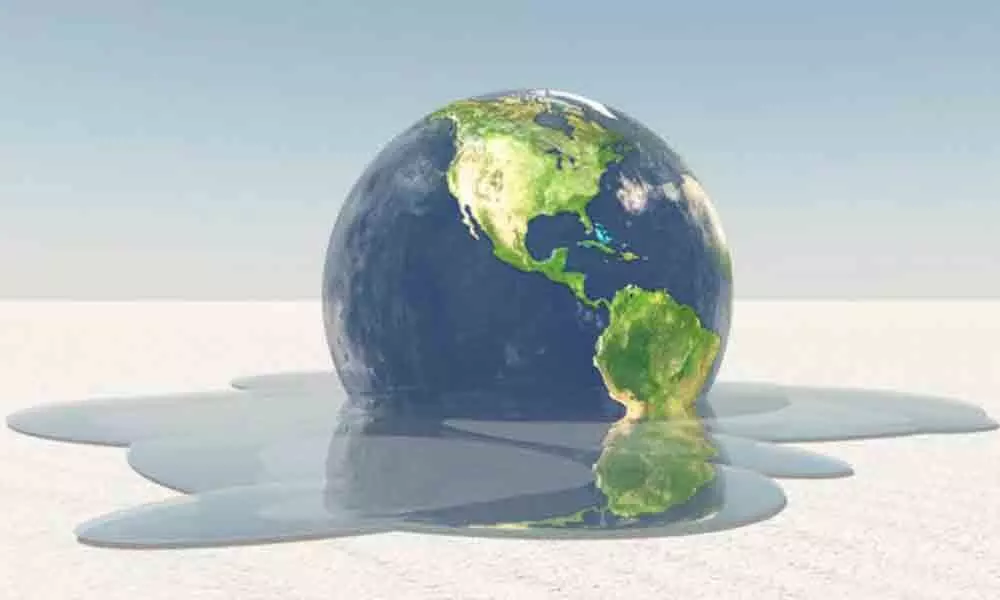Earth to warm more quickly, new climate models show

Greenhouse gases thrust into the atmosphere by burning fossil fuels are warming Earth's surface more quickly than previously understood, according to new climate models set to replace those used in current UN projections, scientists said Tuesday.
Greenhouse gases thrust into the atmosphere by burning fossil fuels are warming Earth's surface more quickly than previously understood, according to new climate models set to replace those used in current UN projections, scientists said Tuesday.
By 2100, average temperatures could rise 6.5 to 7.0 degrees Celsius above pre-industrial levels if carbon emissions continue unabated, separate models from two leading research centres in France showed. That is up to two degrees higher than the equivalent scenario in the Intergovernmental Panel for Climate Change's (IPCC) 2014 benchmark 5th Assessment Report.
The new calculations also suggest the Paris Agreement goals of capping global warming at "well below" two degrees, and 1.5C if possible, will be harder to reach, the scientists said. "With our two models, we see that the scenario known as SSP1 2.6 - which normally allows us to stay under 2C - doesn't quite get us there," Olivier Boucher, head of the Institute Pierre Simon Laplace Climate Modelling Centre in Paris, told AFP.
With barely one degree Celsius of warming so far, the world is already coping with increasingly deadly heat waves, droughts, floods and tropical cyclones made more destructive by rising seas. A new generation of 30-odd climate models known collectively as CMIP6 - including the two unveiled Tuesday -will underpin the IPCC's next major report in 2021.
"CMIP6 clearly includes the latest modelling improvements," even as important uncertainties remain, Joeri Rogelj, an associate professor at Imperial College London and an IPCC lead author, told AFP. These include increased supercomputing power and sharper representations of weather systems, natural and man-made particles, and how clouds evolve in a warming world. "We have better models now," said Boucher. "They have better resolution, and they represent current climate trends more accurately." A core finding of the new models is that increased levels of CO2 in the atmosphere will warm Earth's surface more easily than earlier calculations had suggested.
If confirmed, this higher "equilibrium climate sensitivity", or ECS, means humanity's carbon budget - our total emissions allowance - is likely to shrink. The French models are among the first to be released, but others developed independently have come to the same unsettling conclusion, Boucher confirmed. "The most respected ones - from the United States, and Britain's Met Office - also show a higher ECS" than the previous generation of models, he said.









